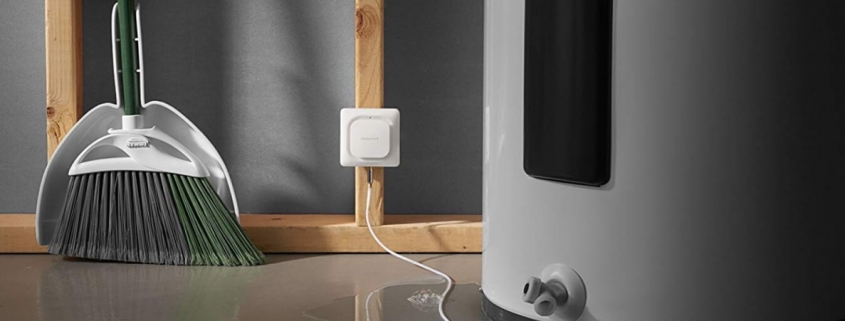The Importance of Flood Alarms and Flood Alarm Monitoring
Flood alarms and flood alarm monitoring are essential to preventing damage when a disaster arises. In the U.S., statistics show that households report roughly 850 water main breaks every single day. And for homeowners, it is estimated that the average cost of repairing flood damage is about $15,000. These damages are not only a nuisance but very costly to repair. And sometimes, the real damage goes much deeper.
It only takes 24 hours for mold to develop in water-damaged areas, so it is essential to repair damages as quickly as possible to avoid adverse long-term effects. With flood alarm and monitoring from Boyd & Associates, you receive real-time flood alerts via text message or phone call the minute a flood is detected, so you can quickly cease the flow of water.
WHAT CAUSES FLOODS?
There are many causes of home flooding which can include natural disasters as well as manmade causes. Natural disasters might include:
- Mudflows
- Flash floods
- Heavy rains
It is also important to consider the environment around your home. Are you located near major bodies of water like lakes or rivers that can be at risk of flooding? Do you have a basement or other area in your house that is particularly exposed and susceptible to potential damage? General awareness is a major step.
Most manmade floods occur with a pipe bursting, plumbing problems, or when a malfunctioning water heater is present. 70% of floods are actually due to water heaters bursting or leaking. So outside of flood monitoring, you should be aware of the age and condition of your household utilities. Generally speaking, try to commit to an annual inspection from a professional to ensure your home utilities are in safe working order.
HOW DOES FLOOD ALARM MONITORING WORK?
What if there was a way to interrupt a potential flood, before any damage can occur? Here’s how flood alarms and flood alarm monitoring from Boyd & Associates protects you:
- Water sensors are installed near appliances such as your hot water heater and washing machine.
2. When overflowing water is detected, a flood alarm signal is sent to the home alarm panel.
3. When water is detected on the alarm panel, an alert will notify you via call or text.
4. Alarm systems with the Flood Avert feature are designed to automatically cut off the water source at the onset of flooding.
HOW DO YOU PREVENT OR PREPARE FOR A FLOOD?
Sometimes, accidents are unavoidable. While you cannot always control natural disasters, you can control how you protect yourself against the unknown. Some quick flood prevention and preparation tips include:
- It is always a good idea to have flood insurance.
2. Ensure that all pipes, water heaters, plumbing, and foundation are working properly on a regular basis.
3. In the event of a natural disaster, attempt to seal the perimeter of your home with waterproof materials that may help prevent damage.
4. Create an emergency plan for your family’s safety and any valuables.
5. Consider adding a flood monitoring system and flood avert automatic shut-off to prevent costly repairs.
FOR MORE SECURITY AND HOME AUTOMATION TIPS AND SOLUTIONS, STICK WITH BOYD & ASSOCIATES
It is important to protect your home before a flood or disaster occurs. The best way to protect your home from damage is with a flood monitoring system installed to always ensure you are aware as soon as the flooding starts. Contact Boyd & Associates today for information on flood alarms and flood alarm monitoring protection.
And, if you’re looking for more ways to keep yourself and your family safe, check out our home security and automation services. We offer a wide range of home security options to protect you and your family. If you are ready to discuss our custom solutions, contact us today to learn more about our services and how we can help you prepare for what’s next.
- Managing Security for Easter Gatherings & Increased Foot Traffic - April 10, 2025
- Why Homeowners Are Investing in Security Systems in 2025 - March 27, 2025
- Protect Yourself from Tax Season Scams - March 10, 2025



